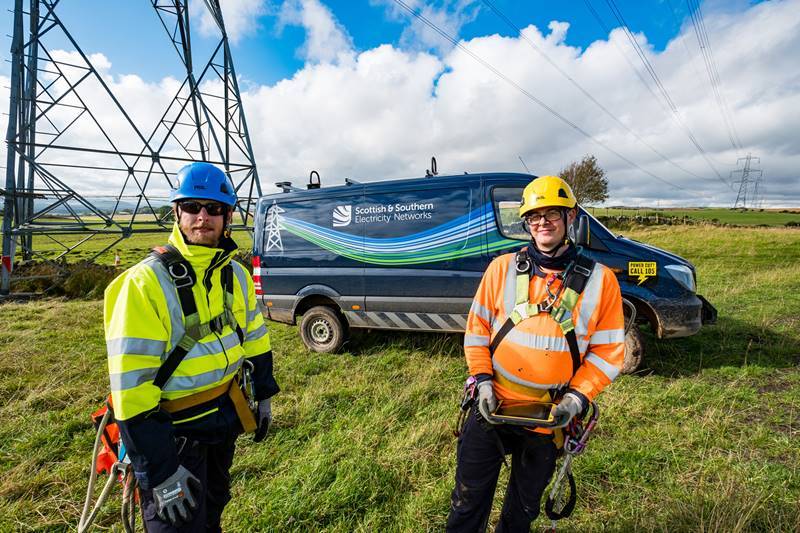Scottish and Southern Electricity Networks (SSEN) Distribution has published an action plan to help accelerate the inclusion of Distribution System Operator (DSO) services in its network operations.
The plan focuses on three core DSO functions; developing a flexibility marketplace, delivering network flexibility and forecasting and planning future needs.
It is designed to cover an initial two year period, helping provide stakeholders and customers to engage with the flexibility products, markets and connections as they emerge. Throughout this period and going further forwards, a dedicated online portal will track progress against key commitments.
“By 2028, we aim to procure at least 5GW of flexibility, grow our flexible connections to 3.7GW of capacity and avoid over £460 million of reinforcement costs,” said Andrew Roper, DSO director at SSEN.
“At SSEN, we are fully committed to getting on with the job of delivering DSO and our DSO Action Plan will be a key portal through which our customers can track our progress and engage with the energy system of the future. This will be supported by an enhanced governance structure with a dedicated DSO function, driving optimal co-ordination with network users and enabling agile decision making.”
Over the next price control period, the network operator is expecting investment in DSO capacity to grow by over £73 million.
During the same period, 2023-28, DSO functionality is expected to save over £460 million in deferred reinforcement and avoided capital expenditure costs.
In developing the DSO governance framework, SSEN commissioned NERA to undertake a review of potential options. This independent report found that any form of DSO separation beyond ring-fencing would ultimately have a negative net impact, due to the costs of separation or ownership unbundling.
Beyond this, the report also cautions that legal separation of DSO functions from network operations could jeopardise the UK’s net zero goals.
“The NERA team’s research shows that enforcing the legal separation of the DSO from the rest of the integrated DNO business would impose substantial costs on customers to create and operate separate businesses and may interfere with the objective of achieving net zero by absorbing substantial time and resources,” said Richard Druce, managing director at NERA Economic Consulting.
“Despite these large costs, there is currently little evidence of a need for this separation to ensure a level playing field between traditional network solutions delivered by DNOs and alternative flexibility services procured from third parties. We therefore recommend Ofgem adopts more limited ringfencing rules, which would be less costly for customers, provide reassurance to flexibility providers as the market develops, and leave open the option for Ofgem to adopt more stringent business separation rules later if evidence emerges that they are required.”
The DSO action plan follows work by SSEN to develop flexibility on its networks, including running a live trial of flexibility trading on a new Neutral Market Facilitator platform in January.
SSEN is expecting there to be nearly 6 million electric vehicles in its two distribution areas by 2050, along with significant growth of other low-carbon technologies like heat pumps.






